This iron determination that lies beneath the surface served Joss well during the grueling road to Sochi.
Three days before competing in the Dew Tour at Breckenridge, he learned a switch rightside double cork nine, and then took that to ten. He now had the back-to-back switch double 1080 in his arsenal, “which you basically had to have to make finals,” he explains. Joss was feeling like he had a chance at qualifying for the Games by being in the top four on the American roster, but he was fighting against some of the biggest talents in the sport and everyone was pushing it: Tom Wallisch, Bobby Brown, Nick Goepper, Gus Kenworthy, Alex Schlopy, McRae Williams.
Joss was in the hunt, but by the time the last qualifying event rolled around, he was all but out of the race, on account of some disappointing results. It all came down to the final Grand Prix event in Park City, his home turf. He had to win to have a chance. And that’s just what he did. With one of the best runs anyone had ever seen. Mike Jaquet, chief marketing officer for the United States Ski and Snowboard Association, remembers, “Going into that weekend in Park City, Joss was not much in the discussion, actually. But his one run was the best run of the year—by score, by difficulty, by variety, by tricks. By any measure, it was the best run we’d seen in multiple years, rivaling anything the sport had seen, really.”
It took a few days of uncertainty and angst before the decision was announced, but by fighting his way to consideration for over a year and then shining when the pressure was on, Joss landed the final discretionary spot on the Sochi-bound slopestyle squad. The team coaches seemed to know what others did not and took a calculated risk, leaving some bigger names, most notably Tom Wallisch, off the team. The skiing community freaked out, and there was a lot of indignation shared via social media. This was tough for Joss, who has long idolized Wallisch, and he was privy to what so many others did not yet understand— that Wallisch had been skiing through an injury and that he was not 100 percent for the Games.
But Joss had Wallisch’s blessing. “If I wasn’t going to go, out of everyone, [Joss] was the one who was skiing the best and had the best opportunity to do well,” Tom says. “They made a good choice. I remember talking to him the day he got the call. He felt so bad talking to me. He was being so nice. He didn’t think he deserved it. ‘I feel bad,’ he said. I told him, ‘No! Don’t feel bad. Go crush it.’” And we know what happened next. Joss continued to progress right up until the big show. There’s the now famous story of Joss learning the triple cork just days before the competition. There’s the victory lap. But then there are the moments that the 26 million people didn’t see after Joss’ first run of finals. Like the moment with the crows.
Back in Breckenridge, six months earlier, Sammy Carlson had told Joss about how crows are regarded as spirits of the mountain. “I haven’t really believed in that kind of stuff before,” Joss explains, “but on the chairlift that day in Sochi, Bobby, Gus and I saw three crows that circled us continuously. I just kept staring at one. I swore my dad was hanging out in the soul of that crow.” Joss took that feeling into practice and the competition. He felt a new energy. He couldn’t fall. “I gained a power. The ability to not think. I’m sure there was a crow flying over me during my run.”
And with a score of 95.8 under his belt, Joss then took the sled tow back to the top of the course. “I waited for the driver to go over the knoll, and then I was totally alone before my second run. It was one of those feelings—I felt like I got knocked out in practice and that this was a coma-dream or something. It was just a perfect winter day. But that run, that’s what I was looking for. That was it. It was the most powerful thing I could have done. I just let out a yelp. I threw my skis and was fist pumping. My music was still bumping, so I don’t even know if anyone heard me or saw me. But it was the first time I really smiled. Not forcing it. My body smiled for the first time in almost a year. For a while, I thought this was unachievable.”
That’s how Joss claimed it. Alone with the crows. But he wasn’t in a dreary hotel room now. He was at the Olympics, about to drop in for a victory lap in front of the world. Letting his skiing do the talking once again.
Right after the event, still in Russia, Joss went to a hockey game with Olympic legend Jim Craig, the United States’ goaltender from the 1980 “Miracle on Ice” hockey team. Craig pulled Joss aside and gave him a bit of golden wisdom. “Watch out,” he said. “Enjoy it. Don’t let the circus get you down.”
Joss traveled straight from those words into the Today show, Letterman and Rolling Stone magazine and was almost always joined by the silver and bronze medalists, Gus Kenworthy and Nick Goepper—together, the media-coined “boy band.”
The United States’ sweep of the first-ever Olympic ski slopestyle podium was newsworthy on many levels, and the three got a lot of airtime. “I got real caught up with it for two or three weeks,” Joss tells me. “Interview to interview and the same questions. Gus’ puppies. My father. I feel a bit like I had the opportunity to give the sport to the world.” And in the heat of it all, the reigning gold medalist was still the one most under the radar. His humble demeanor was somewhat overshadowed by his more vocal medalmates. While the big sweep garnered more public interest, Joss sharing the spotlight sometimes exacerbated his shyness and tendency to let others do the talking if given the choice.
https://youtu.be/tilufyBvx5A
Wallisch says, “Joss is so grounded. And now with a gold medal, he’s the same guy that I met all those years back. It’s nice to know that success doesn’t change a person. He sets a great example and is just a great person to represent the sport.” His coach and friend Skogen Sprang agrees, “Amazingly enough, I don’t think Joss has really changed since the Olympics. His genuine character and humble attitude has kept him very level headed and still one of the nicest people in the ski industry or world.”
Joss is still adjusting to being a gold medalist, but the roadshow is over and his talk show suit has been hung up for now. Winning Olympic gold helped him realize what he’s truly capable of as a skier. And while Joss is not entirely comfortable with the newfound celebrity, he understands and appreciates the opportunity. Now, he’s back to focusing on the most important thing to him—letting the skiing do the talking.
Related: Track Joss Christensen’s speed, airtime and jump distance in an all-new video from Trace
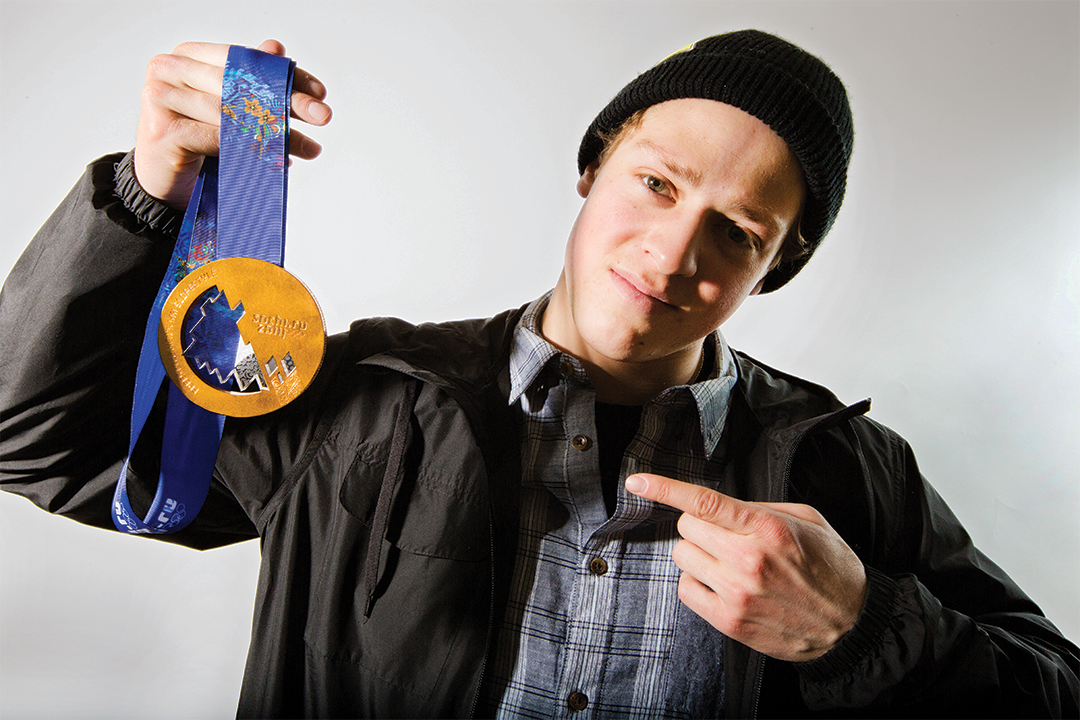

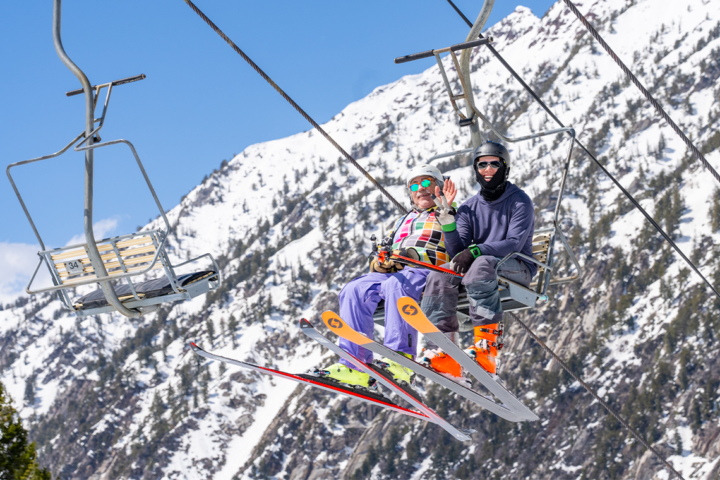

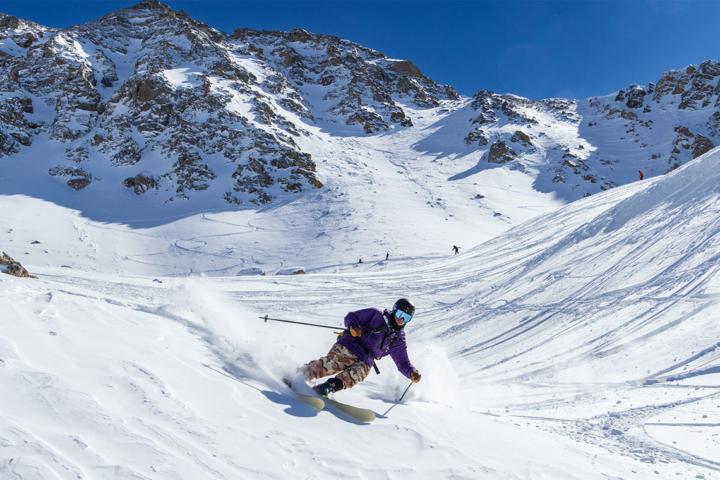
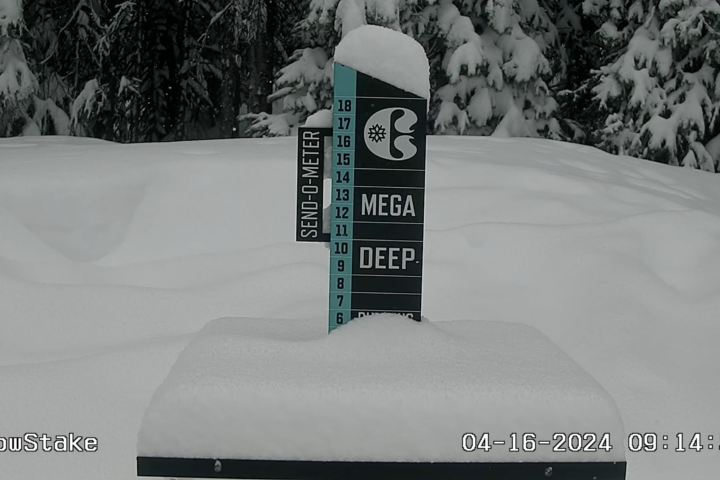
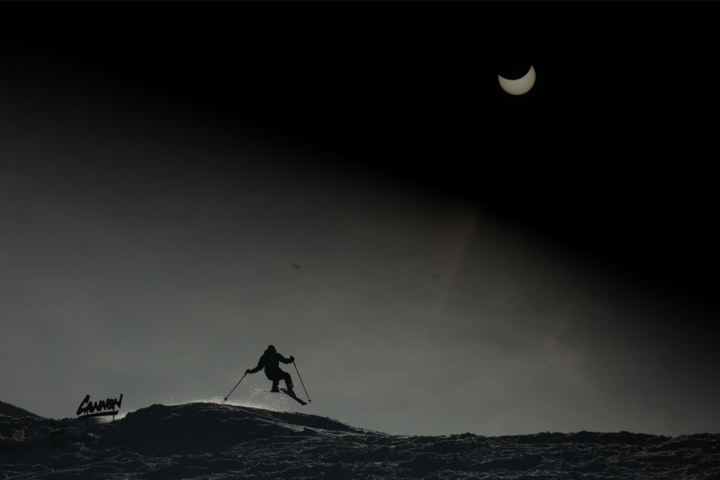
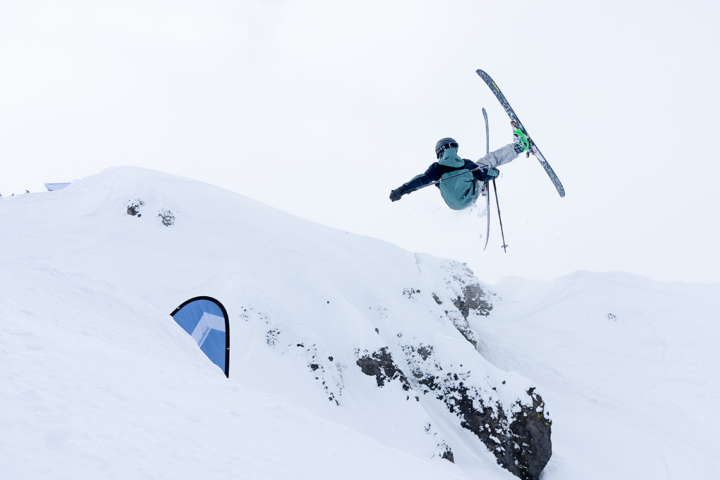


4 thoughts on “Speak softly and carry a big medal: Joss Christensen’s humble rise to recognition”
Comments are closed.